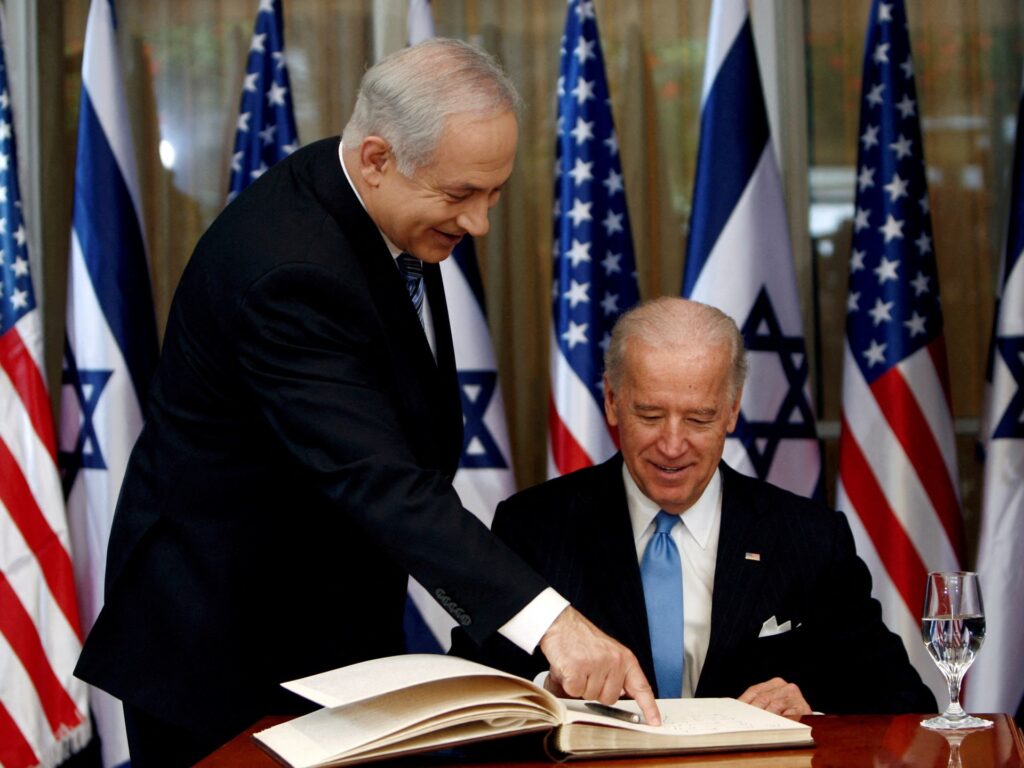US President Joe Biden’s announcement of the proposed Israeli plan for prisoner negotiations is the first of its kind, and came as a surprise to many, even in Tel Aviv.
Since the start of indirect negotiations between the Islamic Resistance Movement (Hamas) and Israel, the United States and the mediators have been careful not to address the details of any proposals being negotiated.
With Biden’s announcement, it seemed as if Washington took the initiative to replace Tel Aviv and negotiate with Hamas on what might be on the table.
An unclear withdrawal and an ongoing war
Although the declaration included demands for the resistance, including the withdrawal of the Israeli army from the Gaza Strip, the proposal did not clarify where its withdrawal would take. The proposal stipulated “the withdrawal of Israeli forces from all populated areas in Gaza,” which suggests that the occupation will keep some of its forces in parts of the Gaza Strip.
Perhaps those who follow Biden’s speech and his offer to Hamas to accept the proposal, otherwise Israel will continue its war on the Gaza Strip, realize that waving the card of continuing the war is to create a kind of pressure on Hamas to accept what is offered to it.
It also appears that it is consistent with the Israeli idea of not ending the war completely, and that it is possible to return to destroying the Gaza Strip if the Israeli prisoners held by the resistance are released.
The Secretary-General of the Palestinian National Initiative, Dr. Mustafa Barghouti, believes that the proposal does not resolve the issue of a ceasefire. “Talk about a sustainable end to the fighting in the second phase does not achieve the demands of the Palestinian resistance for a comprehensive and complete ceasefire.”
Also, the statement issued by the office of Israeli Prime Minister Benjamin Netanyahu shows a hidden intention to return to war after the first stage in which the prisoners are released.
The Prime Minister’s Office said that Netanyahu is determined not to end the war until all its goals are achieved, adding in a statement that the government is united in its desire to return the detainees as soon as possible and is working to achieve this goal.
Endless negotiations
Biden’s announcement also stated that during the six weeks that represent the first phase, Hamas and Israel will negotiate to reach the second phase of the deal, and he said that the two sides will negotiate during those six weeks a permanent ceasefire, but the truce will continue if the talks remain ongoing.
He added, “As long as Hamas fulfills its obligations, the temporary ceasefire will become, according to the phrase contained in the Israeli proposal, a permanent cessation of hostilities.”
In response, Dr. Barghouti warned “of what he called a dangerous trap that Israel is trying to set for the Palestinian side.”
Israel and successive American administrations, along with the Palestine Liberation Organization, have resorted to a policy of negotiation for the sake of negotiation since the Oslo Accords in 1993. They later entered the Palestinian Authority into a series of negotiations, which became a goal in itself for the Authority so that it would not lose the legitimacy of its existence before the Palestinian street.
Therefore, talking about a ceasefire as long as negotiations are ongoing regarding the second phase with the aim of reaching a cessation of hostilities means that this proposal is not based on the principle of stopping the war.
Hesitant Netanyahu
Observers believe that Biden’s announcement may actually be an Israeli-American plan to end the war, even if Netanyahu does not admit it.
Therefore, Netanyahu did not want to appear in this way, as some members of his government did not know about the details of the deal, especially Ministers Itamar Ben Gvir and Bezalel Smotrich.
The announcement also puts pressure on Netanyahu not to back down from what was agreed upon, as happened after Hamas agreed to the last proposal, which fell into the hands of Netanyahu, who expected Hamas to reject and hold it responsible for the continuation of the war. Therefore, Netanyahu proceeded to accuse Egypt of having made a change to the terms of the deal.
Enthusiasm and positive interaction
As soon as Biden’s proposal came out in the open, Hamas stated that it viewed the matter positively, stressing that it would deal positively with any proposal based on a permanent ceasefire and complete withdrawal from Gaza.
According to observers, Hamas responded positively, quickly, and intelligently to the proposal announced by Biden, similar to its political path in dealing with all previous developments during the past eight months, starting with the Paris proposal, and ending with this proposal.
Saeed Ziad, an analyst and researcher in political and strategic affairs, believes that Hamas dealt “positively with the proposal and did not antagonize the United States or defuse sensitivity with it, with the aim of neutralizing it as much as possible and reducing the severity of its bias towards the Israeli occupation.”

